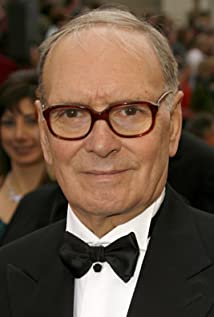A classmate of director Sergio Leone with whom he would form one of the great director/composer partnerships (right up there with Eisenstein & Prokofiev, Hitchcock & Herrmann, Fellini & Rota), Ennio Morricone studied at Rome's Santa Cecilia Conservatory, where he specialized in trumpet. His first film scores were relatively undisti...
Show more »
A classmate of director Sergio Leone with whom he would form one of the great director/composer partnerships (right up there with Eisenstein & Prokofiev, Hitchcock & Herrmann, Fellini & Rota), Ennio Morricone studied at Rome's Santa Cecilia Conservatory, where he specialized in trumpet. His first film scores were relatively undistinguished, but he was hired by Leone for Pour une poignée de dollars (1964) on the strength of some of his song arrangements. His score for that film, with its sparse arrangements, unorthodox instrumentation (bells, electric guitars, harmonicas, the distinctive twang of the jew's harp) and memorable tunes, revolutionized the way music would be used in Westerns, and it is hard to think of a post-Morricone Western score that doesn't in some way reflect his influence. Although his name will always be synonymous with the spaghetti Western, Morricone has also contributed to a huge range of other film genres: comedies, dramas, thrillers, horror films, romances, art movies, exploitation movies - making him one of the film world's most versatile artists. He has written nearly 400 film scores, so a brief summary is impossible, but his most memorable work includes the Leone films, Gillo Pontecorvo's La bataille d'Alger (1966) , Roland Joffé's Mission (1986), Brian De Palma's Les incorruptibles (1987) and Giuseppe Tornatore's Cinéma Paradiso (1988), plus a rare example of sung opening credits for Pier Paolo Pasolini's Des oiseaux, petits et gros (1966).
Show less «



